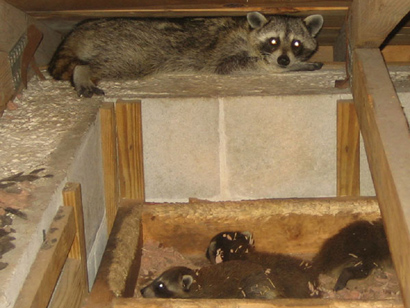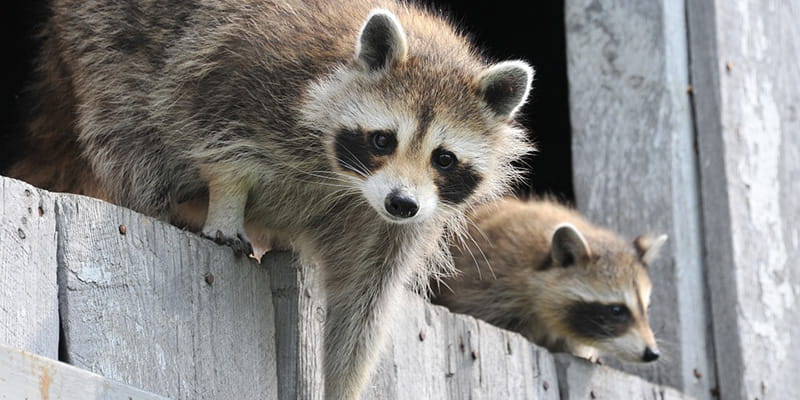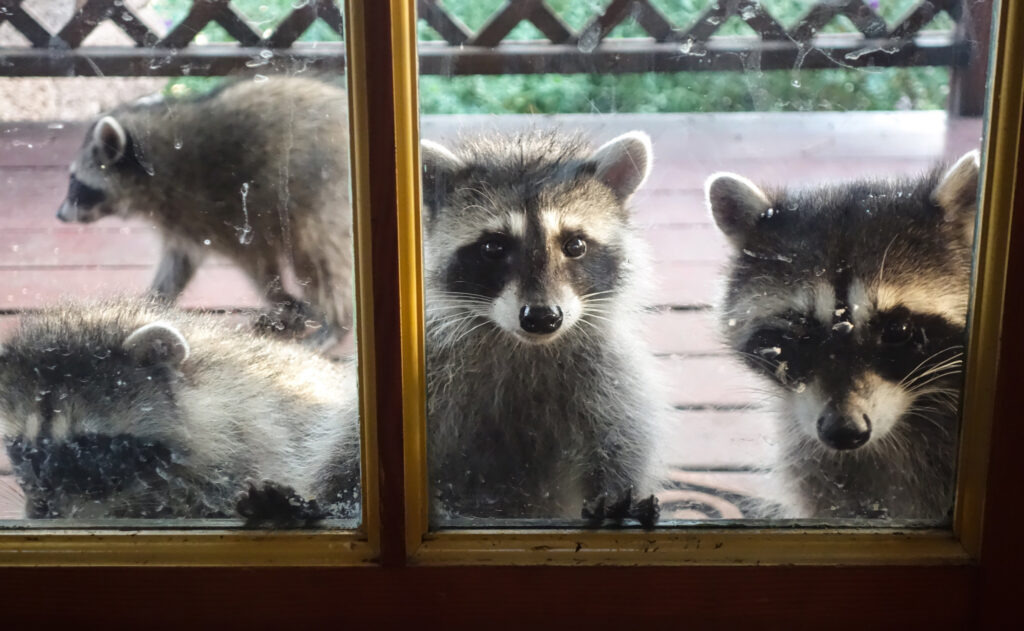Raccoon Den In Attic

It s no secret that raccoons are a nuisance.
Raccoon den in attic. While they re not out to destroy your home sweet home it is important to get them out and keep them out. This video demonstrates why you should hire a professional to go face to face with a raccoon in an attic especially during baby season. On the hunt for food and a place to establish their den they can show up in your yard your attic your chimney rummaging through your garbage and more. Here s how to get rid of raccoons.
This mother was no. Here are the general steps for removing raccoons from an attic. If you have a raccoon infestation in your attic or anywhere else on your property you will be able to clearly see their toilet too. Wild raccoons are also known to build dens in hollow logs below rocks or brush piles or in hollowed trees.
Raccoons also consider humans as predators and are so aggressive towards them especially when a female newly bred her young cubs and found by the homeowner it can never be humanely removed from the attic until the cubs grow and leave the den. The main reason a raccoon may have made your attic his new den is because the female is about to give birth. Raccoons are excellent mothers and will move their babies to a new den site if given the chance but evicting a mother raccoon always runs the risk of her abandoning or getting. The majority of the time a raccoon in an attic is a female with young yes the majority of the time about 80 of cases of any raccoon in an attic there s a litter of 3 5 baby raccoon pups.
So yeah you never just have a raccoon den in your attic you also have a raccoon latrine in there. The nest of baby raccoons must be found removed and the mother trapped. Inspect the home and find the entry hole s which are very large and. And while they sometimes restrict their pooping area to a tight section it s more common for them to leave.
Raccoons in the attic. If you want your house to be free of outdoor critters pay attention to these signs that might mean you have a raccoon in the attic. This is a very complex case. In rural settings dens are often repurposed burrows dug by other animals.
This commonly happens from february to may when you are more likely to experience raccoon activity. Raccoons are large sized smart and aggressive animals besides they are nocturnal it means all. Raccoons are considered a primary carrier of rabies in the united states for instance. In more urban settings a raccoon s den may be an abandoned vehicle a chimney an attic or crawl space or any other protected location they can get into.
A raccoon living in an attic from january to september should always be assumed to be a mother with babies. Raccoons need a safe warm and dry place to raise the new pups and your attic makes a perfect habitat. The most common reason for a raccoon to enter an attic and choose to live there is the case of a female who needs a safe place to give birth and raise.














































